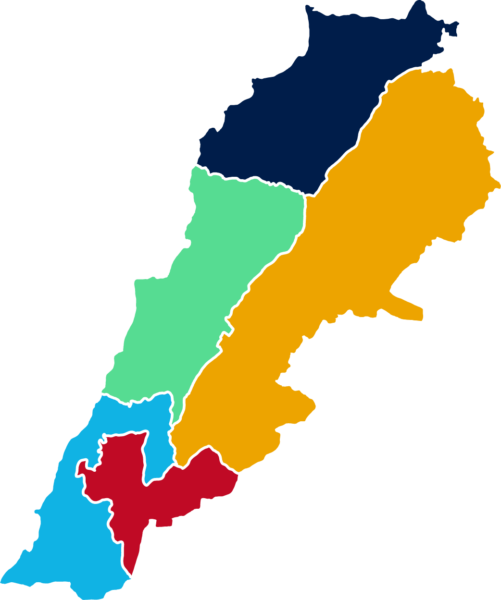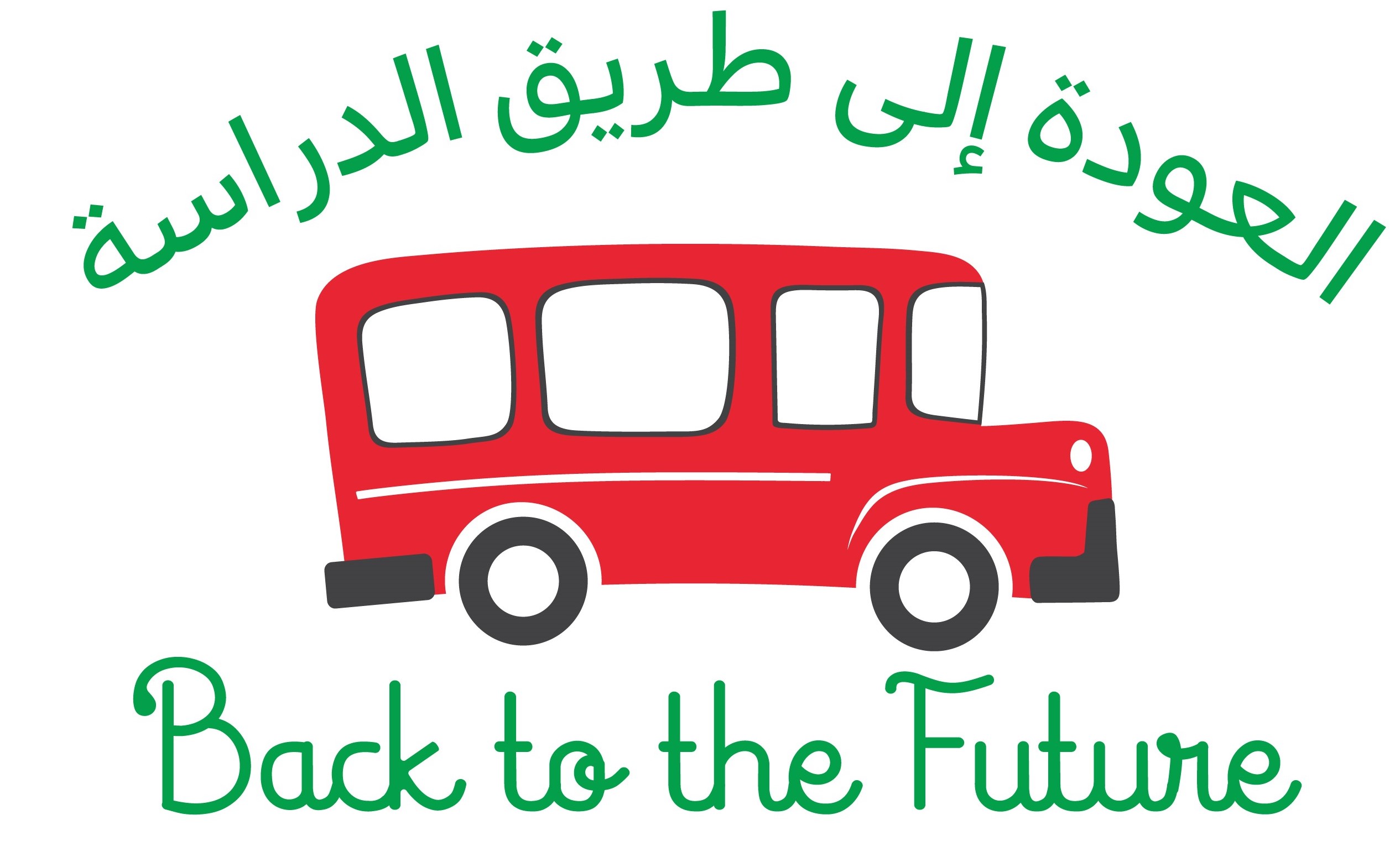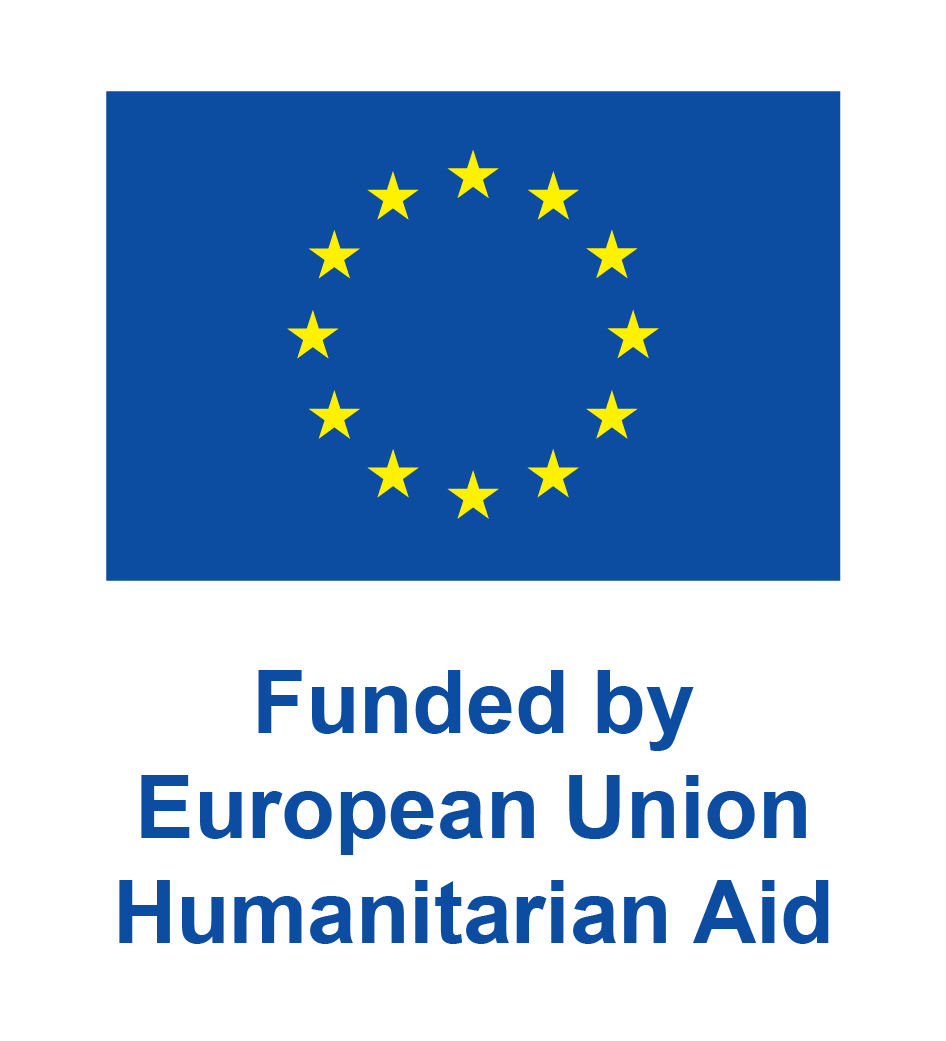BACK TO THE FUTURE
PROJECT
Phase I
December 2016 – June 2019
School readiness, inclusion and retention of children impacted by the Syrian crisis in Lebanon and Jordan.
Over a three-year period (2016-2019), the ‘Back to the Future’ project provided educational support for 21,700 local vulnerable and refugee children, and ensured the upgrading of 22 public schools across Lebanon and Jordan.
PHASE II
June 2019 – April 2022
The “Back to the Future II” project promotes enrolment and improves retention in the formal education system for refugee children impacted by the Syrian Crisis and vulnerable children from host communities in Lebanon. Over the course of three years, the project has been planned to directly benefit more than 33,000 vulnerable Lebanese and Syrian children across the country. Now its second phase, the project is building on the expertise of the consortium’s implementation which started in December 2016.
In Lebanon, and since the outbreak of the COVID-19 pandemic, and in line with the Government’s decision to shut down all educational institutions, non-governmental organizations (NGOs) played a fundamental role in finding new and innovative solutions to face the disruption of educational services, by complementing the efforts of formal education institutions in facing these new challenges. One successful example of mainstreaming distant learning is represented by the Back to the Future project.
PHASE III
MAY 2022 – SEPTEMBER 2022
Project Title: Supporting the right to quality education for vulnerable Syrian and Lebanese children and youth.
Summary of the project:
Back to The Future (BTF) consortium (AVSI, Terre des Hommes Italy, and War Child Holland) ensured a smooth transition and continuity of the education programs from phase 2 to phase 3. The implementation started in May 2022 and ended in September 2022.
In phase 3, the project was part of the Haqqi Consortium funded by the European Union, through the EU Regional Trust Fund.
BTF contributed to the overall objective of the consortium to improve the learning outcomes and wellbeing for vulnerable children and youth, with or without disabilities, supporting them to reach their full potential. The project also addressed the significant gap in education for vulnerable children through the mainstreaming of child protection into education.
Project objective(s):
Outcome 1: Vulnerable girls and boys have increased access to safe and inclusive learning environments.
Outcome 2: Out of school children and youth are provided with quality non-formal education opportunities
Outcome 3: Improved transition and retention of children in an enhanced education system.
PHASE Iv
july 2022 – october 2023
Project Title: Protective environments and educational opportunities for vulnerable out-of-school children in Lebanon
The “Back to the Future IV” contributes to create a safe, sustained, and inclusive access to quality education and promotes wellbeing for vulnerable out-of-school children in Lebanon, with the specific goal to promote successful transition into formal education.
The project reaches out-of-school refugee vulnerable boys and girls through outreaching and regulates non-formal education to gain the relevant skills, to enter and progress in education.
The intervention focuses on the preparation, completion and referral of children for the scholastic years 2022-23/2023-24. To promote academic preparedness for children and transition to formal education, a robust teachers’ professional development approach is being implemented.
Caregivers, teachers and communities are engaged to establish a protective environment for children and support their educational success. Through an integrated approach, all learners are provided with targeted psychosocial support activities and access to case management and protection services.
PHASE v
november 2023 – april 2025
Project Title: Protective environments and educational opportunities for vulnerable out-of-school children in Lebanon.
Summary of the project:
The “Back to the Future V” contributes to create a safe, sustained, and inclusive access to quality education and promotes wellbeing for vulnerable
out-of-school children in Lebanon.
The project will target out-of-school refugee children through outreaching and regulated non-formal education to gain the relevant skills to enter and progress in education. The intervention will focus on the preparation, completion and referral of children for the scholastic year 2024-25.
Caregivers, teachers and communities will be engaged to establish a protective environment for children and support their educational success. Through an integrated approach, all learners will be provided with targeted psychosocial support and access to case management.
PHASE VI
may 2025 -june 2027
The project aims to enhance access to inclusive, quality education and protection services for the most vulnerable refugee girls and boys in Lebanon. It focuses on supporting out-of-school refugee children who have been excluded from education for extended periods.
The initiative also engages caregivers and education personnel to create a supportive environment for children’s learning and development. Through integrated interventions in education and child protection, the project seeks to improve children’s learning outcomes and well-being, enabling them to access, progress in, and remain in both formal and non-formal education within safe, protective, and equitable environments.
OUR ACTIVITIES – phase ii
In order to support access to quality basic education and protection services for vulnerable girls and boys in
marginalized communities in Lebanon, the following activities are provided:
Non-Formal Education for out-of-school children:
• CB-ECE – Community-Based Early Childhood Education: Classes provided in NFE centers for out-of-school children aged 3 to 5.
• BLN – Basic Literacy and Numeracy: Provided at community level in NFE centers for out-of-school children aged 8 to 14.
• CB-HWS – Community-based Homework Support: Provided at community level for children enrolled in public schools in grade 1 to 9.
• Provision of referrals from non-formal education to formal education
Retention support for children enrolled in public schools who are at-risk of drop-out:
• RC – Remedial Courses: Summer classes for in-school children, enrolled in grade 1 to 9, at risk of drop out/demonstrating poor grades in their previous academic year. Age above 7 years old.
• FLC – Foreign Language Courses: English and French to prepare boys and girls aged 6-14 years old enrolled in grade 1 to 9.
• HWS – Homework Support: Afternoon classes for in-school children, age 7 to 14, enrolled in grade 1 to 9, at risk of drop-out and poor academic performance.
• Upgrading School Facilities: Rehabilitation and equipping of theatres for audio-visual, cultural, recreational activities, community engagement; IT rooms, libraries and or laboratories in collaboration with Ministry of Education and Higher Education (MEHE).
Other activities implemented at community level include:
• Outreach and identification of at risk and out-of-school girls and boys
• Community engagement and capacity building for practitioners and community members
• Engagement of caregivers in the educational activities aimed to enhance access and demand for education of children and caregivers
• Provision of inclusive structured psychosocial programs and extracurricular activities
• Awareness raising on child protection risks and other important topics such as COVID-19 prevention
• Identification and referrals of children at risk (medium to high) and with special needs to specialized services (i.e. speech and language therapy, physical therapy)
• Upgrading learning centers to meet standards – safety, child safeguarding, child friendly and inclusive
• Capacity building of facilitators/volunteers and other education staff including CBOs on topics such as pedagogy, inclusive and conflict sensitive approaches, child development, child protection, safe identification and referrals
OUR ACTIVITIES – phases IV – V – vi
The following activities are implemented
Education:
- Outreach and community mobilization.
- Basic Literacy and Numeracy (BLN) for out-of-school refugee children.
- Community-based Early Childhood Education (CB-ECE) for out-of-school refugee children.
- Referral to Formal Education (FE).
- Capacity development for teachers and education personnel.
- Safe identification and referral (SIR) of children at risk.
- Provision of specialized services and assistive devices for Children with disabilities (CWDs) or learning difficulties.
Child Protection:
- Child protection case management support and response to children and families with protection risks.
- Psychosocial support (PSS) for caregivers.
- PSS for children enrolled in Non-Formal Education
CENTERS, SCHOOLS & CBOs
phase ii




















areas of implementation
phase iii
The phase III of the activities are implemented in nine community centres in Lebanon either run by the BTF partners or in collaboration with certified CBOs approved by MEHE-PMU, identified and supported by BTF.
The consortium is working in the districts of Saida, West Bekaa, Arsal, Akkar, Aley, Metn, Baabda, Tripoli and surrounding areas.
The selected centres are equipped and upgraded in order to create a stimulating environment fostering the participation of the family, caregivers and community.
areas of implementation
phase iv
The project covers a wide catchment area, targeting vulnerable locations across 6 governorates with high level of unmet needs in camps, crowded urban areas and underserved rural regions.
Arsal – Zahle (Bar Elias) – West Bekaa (Ghazze)- Beirut – Aley (Souq Al Ghareb)- Metn (Chwaya) -Baabda (Bourj Al Barajneh, Chatilla)- Chouf (Barja) -Saida – Nabatiyeh (Ansar)
areas of implementation
phase v
The project covers the following areas in Lebanon
Ain Jdeideh, Arsal, Qaa, Ghazze, Bar Elias, Zqaq Al Blat, Souk El Gharb, Barja, Daraya, Burj El Barajneh, Chatila, Saida, Ansar, Marjayoun
areas of implementation
phase VI
The project aims to reach broader communities and cover a wider geographic area, including
the South, Nabatieh, Beirut, Mount Lebanon, Bekaa, and Baalbeck-Hermel.

